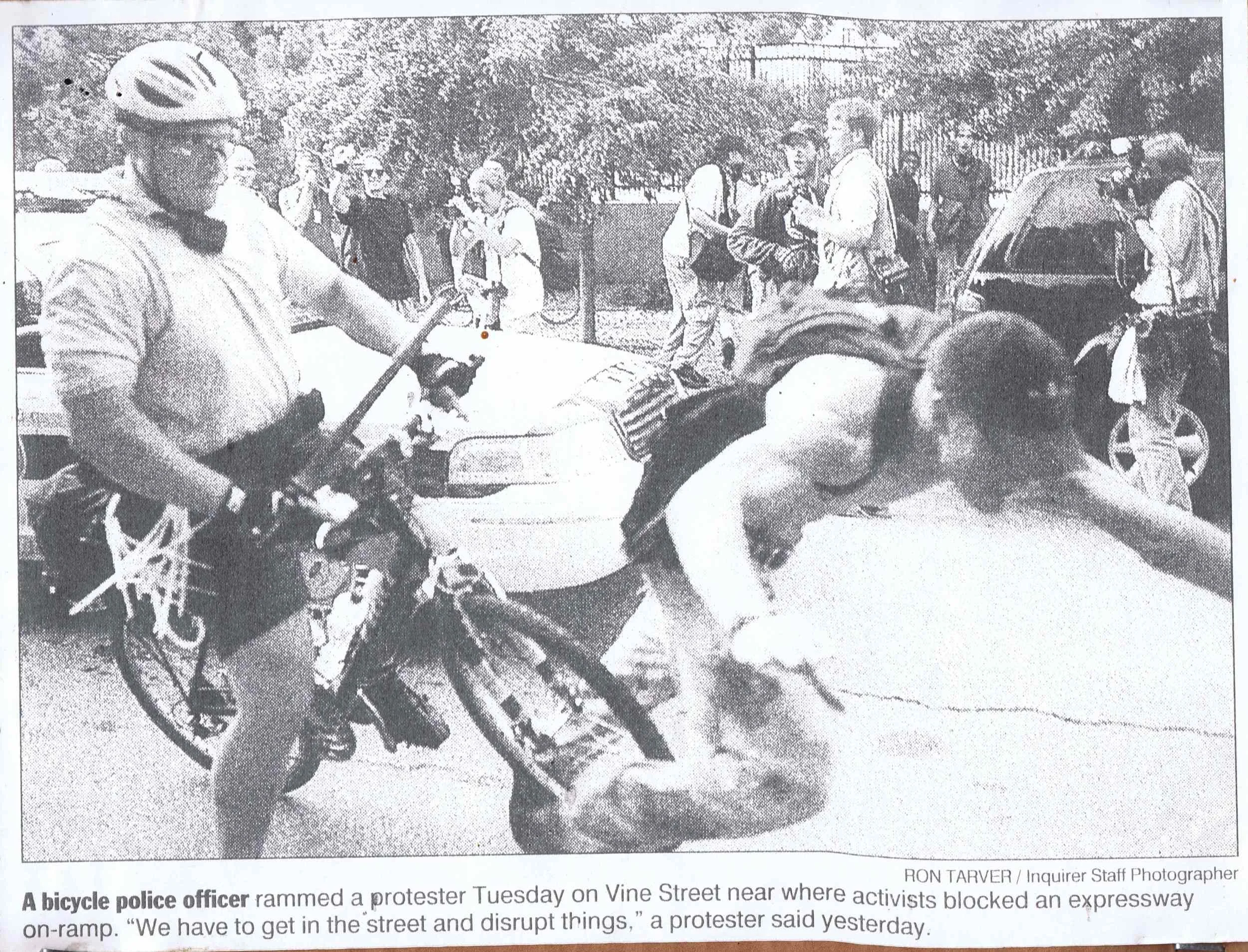Wednesday, the Cleveland Police Department (CPD) allegedly unveiled its Republican convention security "plans" to the city's Safety Committee, but it left the public with a lot more questions than it answered.
In addition to the vague, awkwardly-worded "increased greater-than-normal protection in the neighborhoods" and 12-hour work days for police officers, Deputy Chief Ed Tomba told NBC affiliate WKYC that, "We're not purchasing nerve gas" and "We're not purchasing tanks."
Well, we have that to be thankful for.
At least the City of Cleveland won't be accused of war crimes for using nerve gas on its residents, or even on "outside agitators" (those phantom bogey-men commonly used by local officials before protests as a way of justifying violent behavior by police and to drive a wedge between protesters and the public).
But what will the CPD be spending its money on and what are its actual plans?
So far, mainstream media has played up the purchase of a lot of bicycles, metal barricades, and horses. Seems pretty benign. However, if you study past examples of police response to political protest at Republican conventions you'll note that even these items have been used inappropriately.
For example, during the RNC 2000 in Philadelphia, police used bicycles to herd and assault protesters. Horses were used to corral and trample those who would dare express themselves on the streets. And, metal barricades have been used to trap and arrests dissidents en masse, a favorite tactic of police in convention host cities.
Cleveland officials have also said they'll be purchasing riot gear, which at best will be used to intimidate protesters. But with hundreds of accompanying expandable batons, police can more effectively control protesters by beating them senseless. After all, what else is an expandable baton good for?
The police, however, have been far more secretive than transparent about their plans.
What is the CPD not telling us? Are they going to purchase chemical weapons such as pepper spray and tear gas, which are commonly used against peaceful protesters? Are they going to purchase weapons that fire rubber or wooden bullets or bean bag rounds, also commonly used against dissidents? How about tasers? Or, will they procure every municipal police department's wet dream, the Long Range Acoustic Device (LRAD), or noise cannon, which if used as a weapon can pierce the ear drum?
After all, the City of Cleveland was ironically promised $50 million by the federal government as part of the National Special Security Event (NSSE) designation. "Ironic" because this is the same federal government that took the city to court seeking a consent decree to help curb a police department accused of--you guessed it--excessive use of force.
The CPD on two occasions have refused to meet with the courts and other city officials who want to coordinate on how to deal with an expected massive influx of people. Indeed, the CPD has said openly that it doesn't expect to divulge its exclusionary zone or so-called "security perimeter" until a week before the convention.
All of this rightly concerns civil liberties groups and those who have witnessed the suppression of free speech time and time again at NSSEs like the quadrennial political conventions. Empty platitudes by police officials notwithstanding, we can likely expect more of the same violence and repression on the streets as in previous years, at least until the city becomes more transparent and less dogmatic about its approach.
